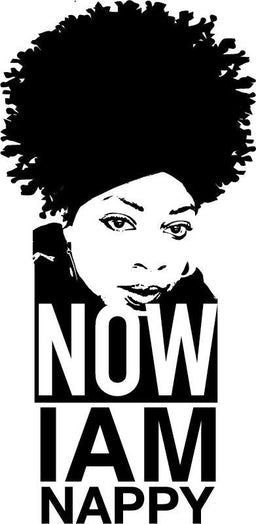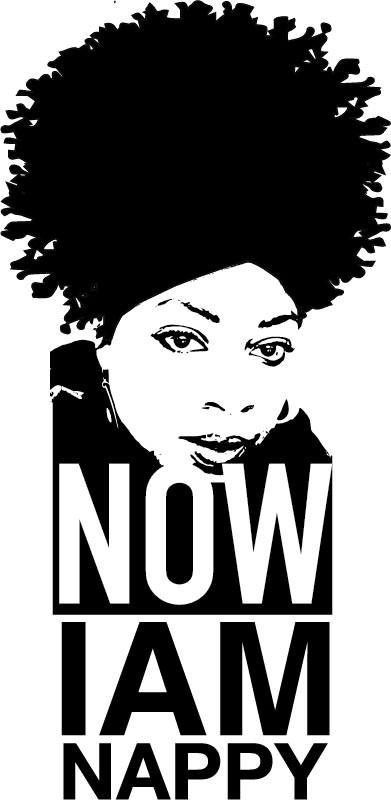Hair loss, no one wants to talk about it but its a very common issue for many black women. One of the most common forms of hair loss for black women is Central Centrifugal Cicatricial Alopecia (CCCA). CCCA forms primarily in the crown part of the scalp and radiates outward in a circular (centrifugal) pattern. When left untreated, CCCA results in follicle damage and scarring leading to permanent hair loss.
What causes CCCA?
Unfortunately, doctors are unsure of the exact causes, however the history of CCCA helps us understand some of the factors that could cause this type of hair loss. In 1968, 51 African American women were diagnosed with “hot comb alopecia”. These women regularly straightened their hair with a hot comb and petrolatum which they believe caused the scarring alopecia at the center of their scalp. Their bald patches had a smooth and a shiny surface and the doctors hypothesized that the heated petrolatum caused chronic inflammation and destroyed the root sheath of the hair strand causing follicle death.
It wasn’t again until 1992 that more studies were conducted, and researchers were presented with a study of women with the same central scarring alopecia who did not use a hot comb and petrolatum. A new diagnosis called Follicular Degeneration Syndrome was developed and hypothesized that due to external injury to the hair such as those caused by chemicals (perms, relaxers) and tight hairstyles contributed to the ongoing follicular degeneration syndrome.
In the early 2000 further research lead to the most common name for this type of hair loss, Central Centrifugal Cicatricial Alopecia. It is a collective name for a group of disorders that are characterized by a common feature of follicular degeneration, inflammation, and fibrosis.
What are some of the early symptoms of CCCA?
· Hair loss or thinning in the crown section of the hair
· Sore or tender scalp
· Constant itching, burning, or tingling in the crown area
· Bacterial infections
How to Prevent CCCA or treat CCCA
First and foremost, if you are experiencing any type of hair loss, go to your doctor or dermatologist.
Some of the causes of CCCA
· Allergies that lead to dermatitis: Many of us may be allergic to some of the ingredients in our hair products, whether there are natural or synthetic. So be sure to check your shampoos, Conditioners and styling agents if you notice an itchy or sore scalp after wash day or applying products to your hair and scalp. Try switching out your hair products one at a time to determine which product may be causing the issue. Additionally, adding herbal treatments to your regimen can help reduce inflammation in the scalp.
· Genetics- since the exact cause of CCCA is unknown, it has been speculated that it could be genetics, especially as many researchers found that you were more likely to experience CCCA if your mother or grandmother had the same condition. However, I like to challenge this theory by asking is it genetics or the same bad hair practices passed down through generations.
· Hormones play a major role in our hair growth and hair loss. Hormone imbalances such as hyperthyroidism extreme sweating, irritability, rapid heartbeat, weak and brittle hair. If you are experiencing any of these symptoms go speak to your doctor immediately.
· Vitamin Deficiencies- Yall, this one is so key and what personally caused my hair loss. About 7-8 years this one hit me hard, I had a poor diet lacking in protein and iron, which eventually led to me becoming anemic and losing my hair. So always get a blood test and make sure they test your vitamin B levels, iron levels, and vitamin D levels- all of these are key to preventing hair loss.
· Tight Hairstyles- As black women, many of us love our cornrows, braids, twists, top knot buns (me too). However, when these styles are too tight or when extra hair is added, it can weigh down the hair follicles and cause inflammation and damage leading to permanent hair loss. So, switch up your styles constantly to remove tension from the crown area. Find low tensions styles as in some of my video here. Additionally, if your hair is ever braided too tightly, remove those braids IMMEDIATELY.
We also want to monitor how we are styling our hair during wash days, many of us section our hair into four and wash, twist and moisturize in those quadrants. This can cause a lot of tension on the crown creating inflammation and follicle damage. Try adding 5-6 sections during wash day, adding one more in the crown section of the hair to give the crown section the special treatment it needs.
· UV Damage- UV rays and excessive heat can damage the crown part of your head. It is important to protect your head with a hat or headwrap and use red raspberry oil which has a high SPF.
· Gravity- The crown of our heads in the highest point of the body and poor circulation can cause minimal blood flow to that area. Exercise and scalp massages are a great way to help improve blood flow to the area. My favorite is to massage with herbal oils that reduce inflammation and help stimulate hair and fight hair loss, such herbs as Ashwagandha, Amla, Rosemary, Fenugreek, and Turmeric.
Do you have any additional tips to add?
Additionally, check out my video below regarding



